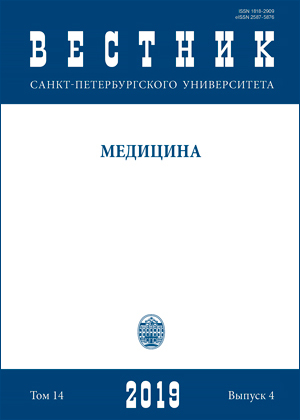IVF/ICSI efficiency in women with Hashimoto thyroiditis
DOI:
https://doi.org/10.21638/spbu11.2019.431Abstract
It is known that in women affected with thyroid autoimmunity, namely Hashimoto’s thyroiditis, the prevalence of infertility is very high and reaches 47%. The retrospective cohort study was performed to assess the effects of thyroid autoimmunity on IVF/ICSI outcomes in women with infertility due to tubal factor and verified autoimmune thyroiditis in status of euthyroidism. The present study confirms a negative impact of thyroid autoimmunity on the course of pregnancy achieved through IVF/ICSI. Thyroid autoimmunity does not appear to have an impact on IVF/ICSI outcome in terms of mean number of oocytes retrieved. However, fertilization, implantation and delivery rates were lower, and the risk of miscarriage was higher in the presence of anti-thyroperoxidase autoantibodies. Thus, thyroid autoanantibodies positivity even in euthyroid state should be considered an independent risk factor for pregnancy complications after IVF/ICSI treatment.
Keywords:
TPOAbs, ART, infertility, ovarian reserve, embryo qualit
Downloads
References
References
Downloads
Published
How to Cite
Issue
Section
License
Articles of "Vestnik of Saint Petersburg University. Medicine" are open access distributed under the terms of the License Agreement with Saint Petersburg State University, which permits to the authors unrestricted distribution and self-archiving free of charge.




